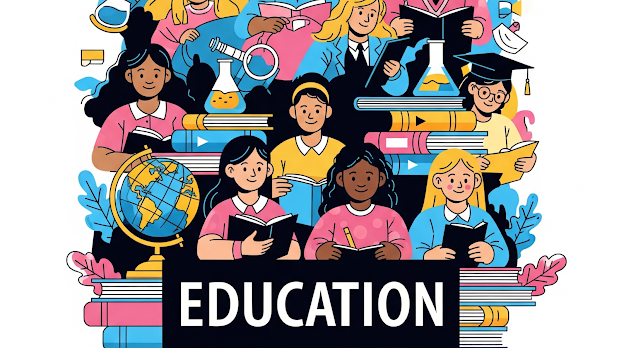Mid-2025 finds the global education landscape in a state of dynamic evolution, propelled by technological advancements, shifts in pedagogical approaches, and a heightened focus on future-ready skills. From early childhood development to lifelong learning, institutions are adapting to meet the demands of a rapidly changing world, with an increased emphasis on personalization, accessibility, and the integration of emerging technologies.
1. AI's Transformative Role in Personalized Learning and Administration
Artificial Intelligence (AI) has moved beyond a buzzword in education; it's now actively being integrated into various facets of the learning experience and institutional management. In mid-2025, we are seeing a significant rise in AI-powered adaptive learning platforms that tailor content and pace to individual student needs, offering real-time feedback and identifying knowledge gaps. Beyond the classroom, AI is streamlining administrative tasks such as scheduling, grading, and even predictive analytics for student retention.
Analysis: The trend towards AI in education is driven by the promise of hyper-personalization and increased efficiency. AI can free up educators from mundane tasks, allowing them to focus more on mentorship and complex instructional strategies. For students, it means a more engaging and effective learning journey, especially beneficial for diverse learners or those in large class sizes. From a global perspective, AI offers scalability, potentially making quality education more accessible in underserved regions, including parts of Indonesia. However, challenges persist:
Ethical Concerns: Ensuring data privacy, preventing algorithmic bias in assessments, and maintaining human oversight are paramount.
Teacher Training: Educators require extensive professional development to effectively integrate AI tools into their pedagogy.
Digital Divide: Access to necessary technology and reliable internet remains a barrier for many, exacerbating existing inequalities if not addressed. The ongoing efforts in regions like West Java to improve digital literacy and infrastructure are crucial in this context.
2. Hybrid Learning Models Becoming the Norm, Not the Exception
The shift to blended or hybrid learning, accelerated by recent global events, has cemented its place as a mainstream delivery method across all educational levels. Mid-2025 sees not just continued widespread adoption of virtual components but also the refinement of sophisticated hybrid models that strategically combine online instruction with in-person engagement for optimal learning outcomes.
Analysis: Hybrid learning's enduring trendiness stems from its undeniable benefits in flexibility and accessibility. It allows institutions to reach a broader student demographic, including working professionals, individuals in remote areas (like some parts of Bekasi Regency), and those who benefit from self-paced learning. The refined models focus on leveraging the strengths of both modalities: in-person for collaborative projects, hands-on activities, and socio-emotional development; online for content delivery, individualized practice, and resource access. The challenge lies in designing truly effective hybrid curricula that seamlessly integrate online and offline components, ensuring equitable access to technology for all students, and addressing potential issues of digital fatigue or isolation.
3. Emphasis on Future-Ready Skills and Competency-Based Education
Traditional rote learning is increasingly giving way to an education focused on equipping students with skills crucial for the 21st-century workforce and society. Mid-2025 sees a strong emphasis on critical thinking, problem-solving, creativity, collaboration, digital literacy, and emotional intelligence (EQ). This is often delivered through competency-based education (CBE), where students advance upon demonstrating mastery of skills, rather than simply seat time.
Analysis: This trend is driven by the rapid pace of technological change and the evolving demands of the job market, where adaptability and transferable skills are highly valued. CBE offers a more personalized and flexible learning path, allowing students to progress at their own pace and focus on areas where they need more development. It also provides clearer metrics for employers regarding a graduate's capabilities. For countries like Indonesia, with a young and growing workforce, fostering these "future-ready" skills is crucial for economic competitiveness. The challenge is in developing robust assessment methods for competencies, ensuring curriculum alignment across different educational levels, and shifting away from ingrained traditional teaching methods.
4. The Rise of Micro-credentials and Lifelong Learning Ecosystems
The concept of a singular, linear educational path is rapidly being replaced by a model of continuous, lifelong learning. Mid-2025 is marked by the proliferation of micro-credentials, digital badges, and short-form courses that allow individuals to acquire specific skills and qualifications quickly. Universities, vocational schools, and corporate training programs are increasingly offering these flexible learning opportunities.
Analysis: This trend reflects the necessity for individuals to continuously upskill and reskill in response to rapid technological shifts and career changes. Micro-credentials offer a flexible and cost-effective way to gain specialized knowledge without committing to full degree programs. They empower individuals to tailor their learning journeys to their specific career goals and personal interests. This also benefits employers who need employees with very specific, in-demand skills. The challenge lies in ensuring the quality and recognition of these diverse credentials across different industries and educational systems, and in creating robust frameworks for stacking micro-credentials into larger qualifications.
Conclusion: A Dynamic Landscape Demanding Adaptability
The education sector in mid-2025 is characterized by a profound and ongoing transformation. The integration of AI, the mainstream adoption of hybrid learning, the sharpened focus on future-ready skills, and the rise of flexible lifelong learning pathways are not just temporary adaptations but represent fundamental shifts in how knowledge is acquired, disseminated, and applied. While these trends promise greater personalization, accessibility, and relevance, they also necessitate careful navigation of ethical considerations, technological equity, and the continuous professional development of educators. As societies like Indonesia continue to invest in their human capital, embracing these evolving educational paradigms will be critical for fostering innovation, economic growth, and a well-prepared citizenry for the challenges and opportunities of the future.



Social Media